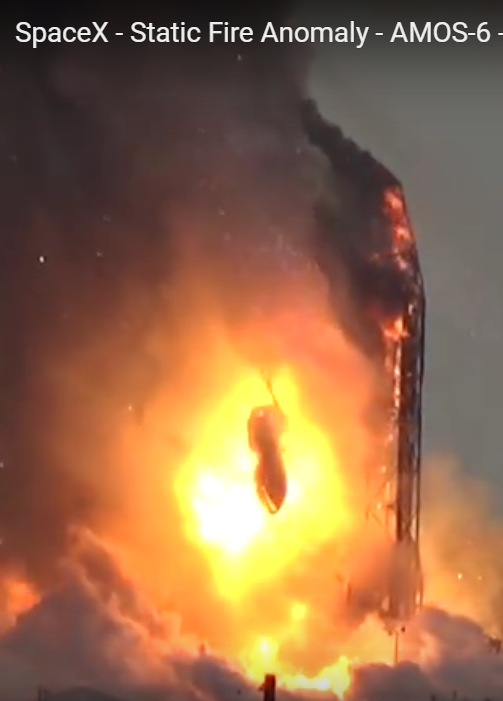 The answer turns out to be "Arrhenius, of course" and the details turn out to be not desperately interesting. But if you want to know more see Which early works are cited most frequently in climate change research literature? A bibliometric approach based on Reference Publication Year Spectroscopy (no, I didn't bother find out exactly what they meant by that) by Werner Marx, Robin Haunschild, Andreas Thor and Lutz Bornmann. h/t Retraction Watch although this appears to have nothing to do with retraction.
The answer turns out to be "Arrhenius, of course" and the details turn out to be not desperately interesting. But if you want to know more see Which early works are cited most frequently in climate change research literature? A bibliometric approach based on Reference Publication Year Spectroscopy (no, I didn't bother find out exactly what they meant by that) by Werner Marx, Robin Haunschild, Andreas Thor and Lutz Bornmann. h/t Retraction Watch although this appears to have nothing to do with retraction.
Most of the others aren't really "climate change" at all - trade winds and the like. Darwin makes it in.
Fourier doesn't appear till you get into the detail, which surprised me.
More like this
It's always amazing to watch what a Category 4 or 5 hurricane does to the ocean it passes over. So lets go over to Remote Sensing Systems and look at the Caribbean before and after Dean passed.
A while ago, crowing over the extent of Arctic sea ice this winter and the possibility this would mean loadsa ice this summer, I noted that "it is clear from that, that the winter anomaly doesn't correlate too closely with the summer minimum".
We knew October was going to be hot. Only hours ago the Japanese Meteorological Agency came out with their data showing October 2015 to be the hottest October in their database.
Asks RP Sr's paper in GRL (or rather, ask Thomas N. Chase, Klaus Wolter, Roger A. Pielke Sr and Ichtiaque Rasool). Interestingly, they conclude "not really".

I have a list of early papers I've come across. Additions welome.
http://www.davidappell.com/EarlyClimateScience.html
RPYS is the software used:
http://www.leydesdorff.net/software/rpys/
David, that paper can possibly help identify some more.
I'm still pitching Tyndall
@Marco: RPYS is a technique, not a software package. The description in the paper is more or less what I would have guessed from the name:
OT sorry.
Who gets to define (virtually) ice free arctic and do you see anything odd with what has happened with AR5?
I can understand that one year under 1m km^2 might well be an exceptional year and that might be too soon. But why would scientists decide there has to be 5 consecutive years under 1m km^2 rather than a 5 year average to be under 1m km^2? If we had just over 1m km^2 every 4th or 5th year the date of ice free might be delayed for a considerable period.
http://forum.arctic-sea-ice.net/index.php/topic,1457.856.html
looks at some of the info on when and how introduced which perhaps seems a little sparse?
I guess I am more inclined to think mistake introduced at late stage so little further review rather than some motivated change. Maybe just misinterpretation of caption to fig 2.1c of synthesis report that has somehow spread? What do you think?
[Belated answer at http://scienceblogs.com/stoat/2016/09/17/sea-ice-dull-as-expected/ -W]
William: past-topic, but it looks like your bet on Arctic sea ice will be null and void. NSIDC's miminum looks to be around 4.1 Mkm2, and JAXA's 4.0 Mkm2. Both have been increasing in the last few days....
More good and useful academic links at The Cli-Fi Report at www.cli-fi.net
OT. You've been rumbled.
http://notrickszone.com/2016/09/13/massive-cover-up-exposed-285-papers-…
Ken Richard wants us to believe that there hundreds of papers from the 1960s, 70s and (interestingly) the 1980s that did warn of ongoing or imminent global cooling. So I checked one of them at random.
It said "there is no evidence that further cooling is likely in the immediate future"
http://www.readcube.com/articles/10.1038/254014a0
Very entertaining.
[Damn. I'd better keep quiet about it then -W]
Ken Richard claims that only by including those papers that did warn of ongoing or imminent global cooling was the pro-cooling number reduced to make it look like there was a majority predicting warming.
An accusation of malice cherry-picking.
There were many papers that did engage with the ongoing cooling or changing weather patterns. Some speculated about the impact of continued cooling. But the cause of the cooling was attributed to a change back to the weather patterns of the 1900 and a slow cooling into the next ice age and/or the impact of particulate and SOx emissions from industry.
The explicit or implicit message from much of that research was that without reductions in the emissions of industrial pollution it could significantly cool the climate. The response was the clean air acts and other regulations that did reduce those dust and SOx emissions in response to the impacts and threat.
Such an example of science describing a potential danger from industrial activity and governments responding to regulate and reduce the risk may not be an example those like Ken Richards might want to highlight.
izen
Oh, why not?
http://xkcd.com/1732/
[Nice, isn't it? And features James and Julia -W]
Something to listen to while you read:
http://www.marilynrucker.com/track/360677/prove-me-wrong?feature_id=132…
From the album Interstellar Pirate Queen
"Yes, I have a problem with people not checking whether any evidence supports the story they're selling me. Email Legends (from Teapot Lady) also covers this pet peeve. Why am I so peevish? I blame the aliens...."